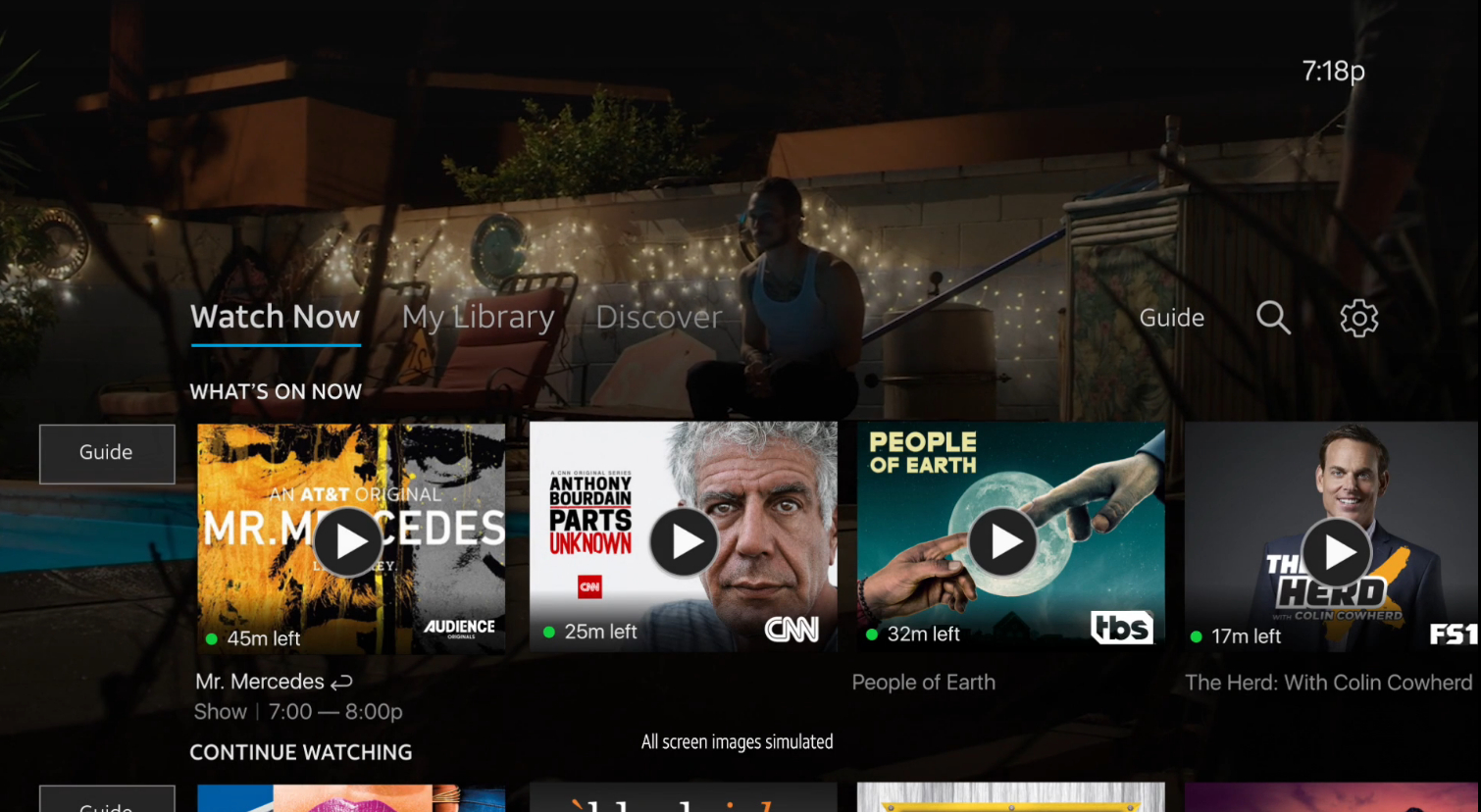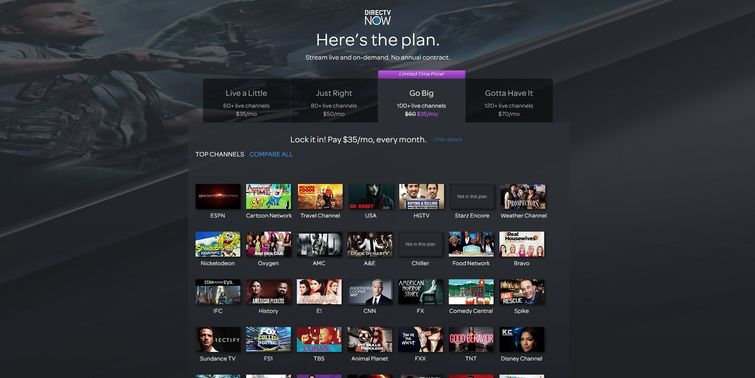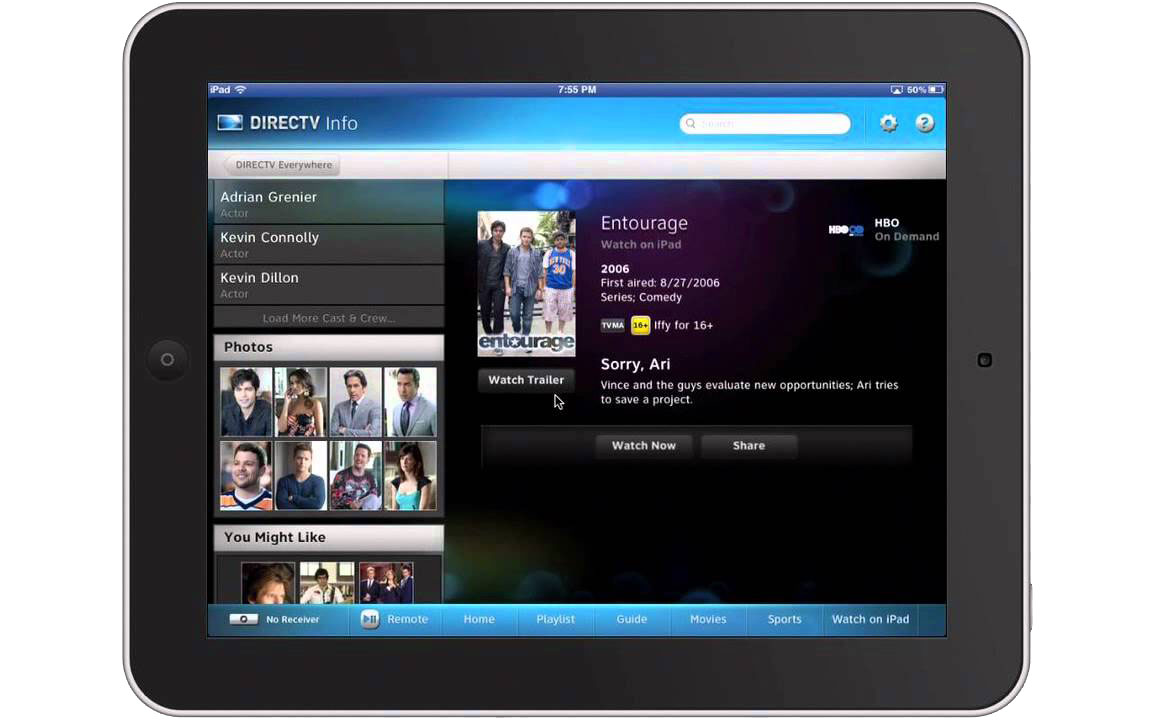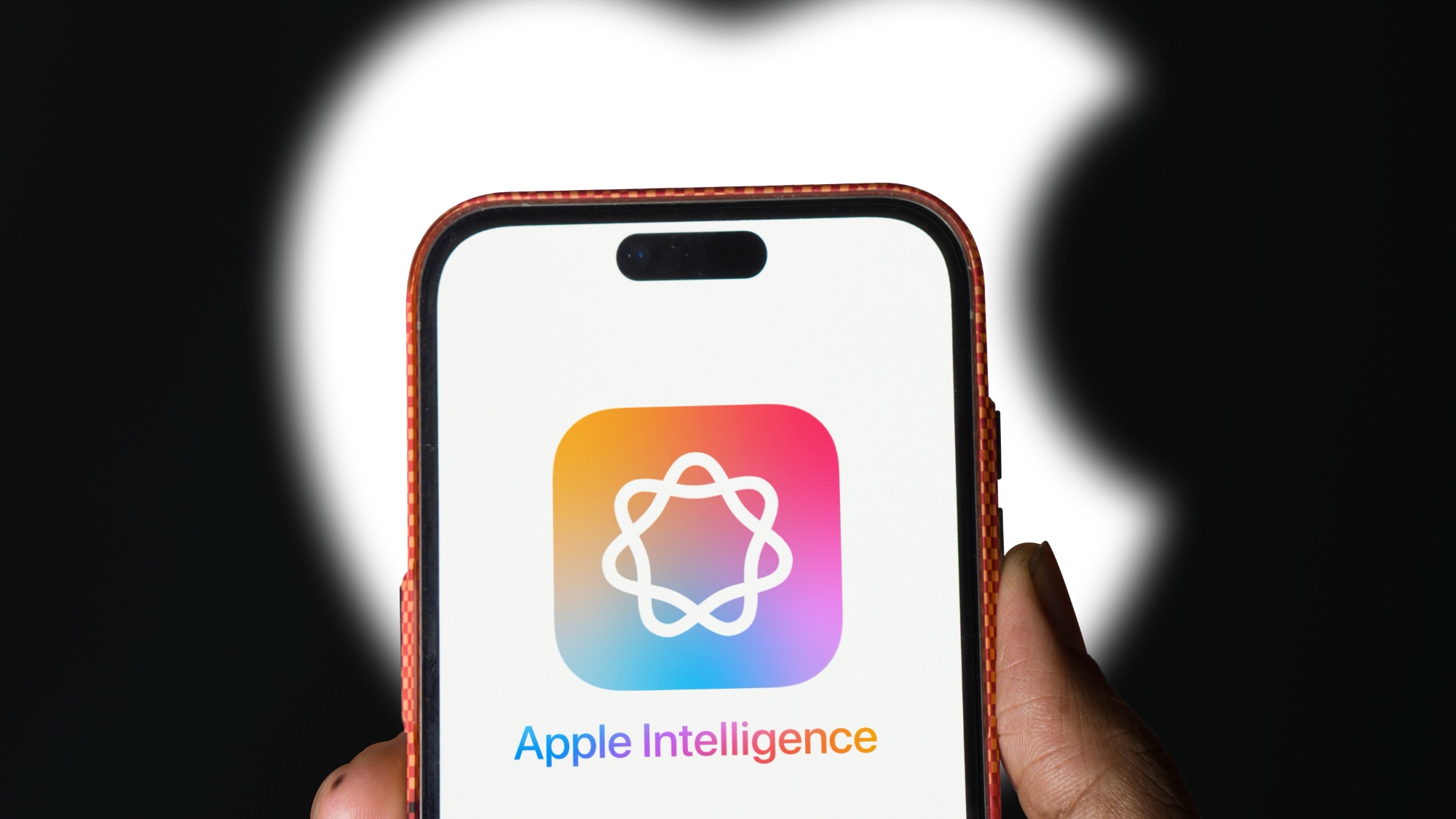DirecTV vs. DirecTV Now: What’s the Difference?
Have you cut the cord?

Editor's Note: Yes, DirecTV Now is becoming AT&T TV Now, details here.
DirecTV Now has been up and running for more than a year, and customers have two important questions: What is it, and how is it different from regular old DirecTV? In the simplest terms, DirecTV is a satellite-TV subscription service, while DirecTV Now is an online streaming service that delivers live TV channels. Both are owned by telecom giant AT&T.

But if you want to know how each one works, which channels each one offers and which one — if either — is right for you, those questions are a bit harder to answer. We’ve gathered some of the most salient facts to help you make your own decisions.
Oh, and are you confused as to why your DirecTV Now app just changed its name to AT&T TV Now? Well, check out our explainer guide here (hint: it's about corporate ownership and brand awareness).
MORE: Hulu Live vs. YouTube TV vs. Sling vs. Vue vs. DirecTV Now: Face-Off!
| Row 0 - Cell 0 | DirecTV | DirecTV Now |
| How You Get It | Satellite dish | Internet |
| Channels | 145 to 315 | 60 to 120 |
| Pricing | $90 to $187 per month**Introductory prices: $50 to $125 per month | $40 to $75 per month |
| Required Hardware | TV, Genie box, satellite dish | Compatible device (Android, Amazon Fire TV, Apple TV, Google Chromecast, iOS, Roku), TV* *Not necessary for Android/iOS devices |
| Pros | More channels; DirecTV sets it up for you | Relatively cheap; No contract |
| Cons | More expensive than streaming; Long-term contracts | Some performance bugs |
Availability
Before you start looking into the pros and cons of a DirecTV or DirecTV Now subscription, you should probably check to see if DirecTV is available in your area. While DirecTV Now is available everywhere in the United States, DirecTV is a satellite service, so you’ll need a satellite dish. While the beauty of a satellite dish is that you can use it from just about anywhere, it does mean that you’ve got to start modifying the outside of your house. Apartment dwellers or people who belong to particularly strict housing associations can probably forget about it.
Channel selection and cost
DirecTV Now offers a variety of channel packages, ranging from Live a Little, with more than 60 channels at $40 per month, to Gotta Have It, with about 120 channels at $70 per month. This may sound like a lot, but even the most modest DirecTV satellite package offers a great deal more: The basic DirecTV package starts at around 145 channels, and the most extreme options range up to about 315 channels. There’s a flip side, though: The packages also range in price from $90 per month to $187 per month. (DirecTV offers considerable discounts to first-time subscribers, however.)

Giving an exact channel breakdown would depend on too many variables, including where you live and what kinds of packages you're willing to buy. However, no matter which package you invest in, you’ll get the basics: A&E, Bravo, CNN, Cartoon Network, Disney, History, Lifetime, Nickelodeon, Syfy and so forth. For both satellite and DirecTV Now subscriptions, the presence of local channels very much depends on both your location and on DirecTV’s standing with those channels.
Just bear in mind that DirecTV Now's DVR features are rolling out as a beta. By default, accounts come with 20 hours of recording capacity, and recordings last 30 days. In the summer of 2018, a more-expensive tier, — 100 hours of storage, with recordings that last 90 days — will launch for an extra $10 per month.
Necessary hardware
Of the two services, DirecTV Now has a lower barrier to entry. All you need is a computer, mobile device or streaming player (Android, Amazon Fire TV, Apple TV, iOS, Google Chromecast or newer Rokus). While the service isn’t available on Android TV or game consoles (but really should be), you can spend about $30 on hardware and be up and running within half an hour.
Not so for a DirecTV subscription, however, which requires both the aforementioned satellite dish and an HD DVR box known as the Genie. If you’re a new DirecTV subscriber, the company will install both the satellite dish and the Genie for you. The dish won't cost you anything extra, and the Genie fees (usually $7 per month) are included with newer subscriptions, unless you want five or more boxes.
MORE: Our Favorite 4K (Ultra HD) TVs Available Now
Mobile access
One bit of good news is that you can access your content on computers, mobile devices and streaming players, regardless of the service you use. The DirecTV (not DirecTV Now) app allows satellite subscribers to view programs on devices other than their TVs. DirecTV subscribers can download the app to both iOS and Android devices, then proceed to watch both live TV and content from their DVR boxes (provided that their Genie is connected to the Internet, of course).

DirecTV also sweetens the deal for AT&T mobile customers. If you’re a customer and you're out and about, you can stream DirecTV content to your phone or tablet, and it won’t count against your mobile data cap. While customers from other wireless providers can still use the app, they’ll probably want to do so on Wi-Fi connections; streaming video tends to eat up data pretty fast.
DirecTV Now, on the other hand, is a streaming app first and foremost. You can download it right to your mobile devices and watch it just like any other streaming service. The same deal is in place for AT&T mobile subscribers: While anyone can access the DirecTV Now app, AT&T subscribers can stream as much of it as they want without having to see their mobile data plans take a hit.
Which one should you get?
Assuming you watch a lot of TV, either DirecTV Now or DirecTV is a feasible option. Although Tom’s Guide has encountered a lot of problems with DirecTV Now’s service, the amount of content you get for the money is more than fair. DirecTV, on the other hand, provides consistent service, but it's heir to the problem that any satellite dish encounters: poor reception, especially during bad weather and the like, and extremely high prices.
DirecTV is a more traditional service. As such, it’s more straightforward to watch on your TV and it offers more channels, but it’s also much more expensive and ties you into a yearly contract. DirecTV Now offers fewer channels, and it's considerably more limited when it comes to the ways you can watch it, but the price tag is much easier to stomach, and you don’t need any expensive, specialized equipment.
Since DirecTV Now offers a free trial and doesn’t require a contract, I’d recommend checking that out first. If it meets your needs, you could save a lot of money; if not, you can always cancel and switch over to the full satellite subscription.
Starting at $50 per month, AT&T TV Now starts with more than 45 channels, including HBO.
Sign up to get the BEST of Tom's Guide direct to your inbox.
Get instant access to breaking news, the hottest reviews, great deals and helpful tips.
Marshall Honorof is a senior editor for Tom's Guide, overseeing the site's coverage of gaming hardware and software. He comes from a science writing background, having studied paleomammalogy, biological anthropology, and the history of science and technology. After hours, you can find him practicing taekwondo or doing deep dives on classic sci-fi.
-
gman863 I just switched from DirecTV satellite to DirecTV Now. This is a great article; however it overlooks a few points that are critical in making a totally informed decision.Reply
First, the added hidden fees for the satellite-based service you don't find out about until the bill arrives. Want an HD DVR? Add $15-$20 per month. Second basic receiver, $7/mo. Regional sports fee, up to $5/month. "Texas (or whatever state you live in) cost revovery fee" $4.95/mo. I had a $72/month channel package that ended up really costing over $127 month. This was without any premium channels such as HBO or PPV. The bait rates offered to new subscribers fail to mention these fees and, after the first year of the 24 month mandatory contract, your cost will skyrocket to regular pricing.
Compare that to the Now service: $35 plus sales tax = about $38 per month - a savings of almost $90 per month. Since I signed up for the normally $60/month package during the first month, I got it for $35/month with a lifetime rate lock guarantee (what was AT&T thinking?)
Next, how much non-antenna programming per month do you watch. What is your ISP's monthly bandwidth limit before they gouge you with extra fees for more data use?
Comcast, as an example, imposes a monthly 1024GB data cap. If you exceed this for more than 2 months in any 12 month period, you'll be hit with added data fees of up to $200. As an alternative, you can pay an extra $50 per month in advance for unlimited monthly data.
I haven't figured out the exact amount yet, but it appears DirectTV Now consumes a few GB per hour using an Amazon Fire Stick. If you only watch 4-6 hours of DirecTV now per day and don't have other data hogs like remotely monitored security cameras or online gaming, you should be ok. If the total streaming is more than this, analyze how much data you are using now, how much DirecTV now you plan to watch and watch your cable bill carefully. If you go over in the first "grace period" month, prepare to shell out the extra $50 to Comcast each month for the unlimited data option.
If cutting the cord entirely and using DirecTV Now, you will need an antenna for local channels. If you live in the sticks, you may need a very powerful outdoor amplified one. On the plus side, over-the-air TV now offers a lot more viewing choices with sideband channels (2.1, 2.2, etc) that do not show up on DirecTV satellite.
You can't get extras such as PPV or NFL Sunday Ticket with DirecTV now. Not an issue in my case, but it could be in yours.
Finally, be aware DirecTV now is still a work in progress. There are times the picture will stutter or break up. In this case, you either have to sign out and sign back in or reboot your Fire Stick. It is getting better, but overall it won't be as close to perfect as the satellite option is.
I hope these tips help you in making your decision. Thanks for reading. -
ignotus0001 For those thinking of switching to DirectTV now, consider this:Reply
The channel lineup is a good deal for the money, but what good is that if you can't watch it? The streaming performance is SO FREAKIN AWFUL that it is UNWATCHABLE. Avoid it like the plague.
I have been a subscriber for 9+ months now, and I keep waiting for improvements, but if anything it has gotten WORSE. Doesn't matter what you watch, in prime-time evening hours your TV will be stuck buffering every 2-3 minutes for 1 minute or more. 7 nights a week. Except of course, during commercials.
Lest you think the problem might lie with my HW or local network, I'm here to tell you that I am a professional web developer and have eliminated those factors. Don't believe me? I suppose my analaysis could be flawed, except for one thing - all I have to do is switch to Netflix and no networking issues. Every time. EVERY time. Strange, eh?
I used to be an ATT cell phone customer, and switched for the same reason - dropped calls, poor sound quality, no matter the city. Don't know WHAT made me think they'd be any better at streaming video. Top to bottom, ATT is incompetent at everything they do if you ask me.
I'm actively looking for alternatives to DirectTV Now. Don't waste your money. -
TheJoshT @IGNOTUS0001 , if YOUR streaming performance is AWFUL, that is 100% on YOUR internet connection. I get excellent Directv Now streams as well as Dolby 5.1 surround sound.Reply -
scarrollodi Is there anyway that you can quickly go back to the last channel with Roku Express or Roku TV? I have both and it drives me crazy having to go through the guide and all the channels to switch from the Basketball and Hockey games on now... Directv Now has no selection for previous channel in the guide or anywhere and no button on the Roku Remotes. What Gives???Reply -
jggraham You are incorrect in one of your assertions regarding satellite TV. An HOA, any Homeowners Association, cannot per the FCC prevent you from installing a satellite dish.Reply
Until January 1, 1997, Homeowner Associations could prohibit a homeowner from putting a satellite dish on his roof. With passage of the Telecommunications Act of 1996, your local HOA is prohibited from enforcing local laws banning, or even delaying mounting of, a satellite dish that is less than 39 inches (1 meter) in diameter.
What's more, they can't even require you to request permission to put the dish on your roof! And once it's up, they can't make you take it down or even move it unless you have either created a safety hazard (which they have to prove to the FCC) or you live in a historic district (listed in the National Register of Historic Places). -
naronline1 When you see in Directv ads Price subject to change...run like hell they really mean it!!!Reply


